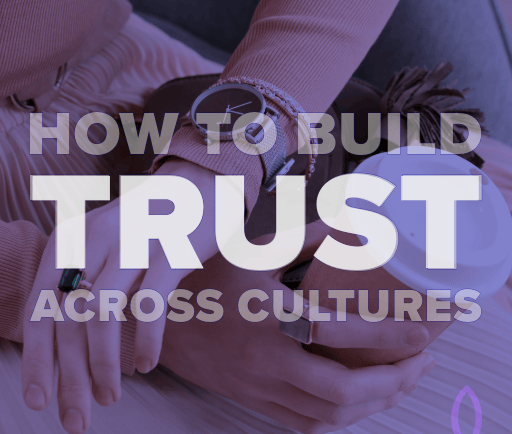Navigating Trust Across Cultures: First Steps for Global Professionals
What builds trust in one culture might undermine it in another. This is a common challenge for individuals working internationally. Different cultures have distinct priorities and values that shape their understanding of trust. These variations can lead to misunderstanding and frustration.
CULTURE
Paul R. Beeman
2/25/20252 min temps de lecture


Trust is core to successful business relationships.
Our native cultures teach us certain behaviors that foster trust. Unfortunately for global professionals, these behaviors and perceptions vary dramatically across different cultures. For global professionals, understanding these nuances is essential. This guide explores the complexities of cross-cultural trust-building, providing a framework for navigating these differences.
The Diverse Landscape of Trust
What builds trust in one culture might undermine it in another. This is a common challenge for individuals working internationally. Different cultures have distinct priorities and values that shape their understanding of trust. These variations can lead to misunderstanding and frustration.
Ryan, a financial manager from the UK, was excited to finally see the world. He had secured a position in Jordan as an accounts manager for an international company. By the end of the first three months, he was conversing with the locals in the cafés and making friends with his basic arabic. However, this cultural savviness was not translating into his professional life. Coworkers consistently showed up late and were very vocal about their disagreements. He felt disrespected and useless. He could not trust his coworkers and was ready to give up.
Here we see a cultural conflict. In the UK, trust is built through punctuality and consistency. There is a clear office hierarchy, and disagreements are often indirect. In Jordanian culture, however, trust is built through relationships and uninterrupted time spent together. Compassion and sacrifice are highly valued, along with personal and family honor.
Key Considerations for Cross-Cultural Trust-Building
To better navigate cross-cultural interactions and build trust effectively, consider these key areas and where your own culture falls on the spectrum, as well as where the new culture you are entering likely falls:
How important is punctuality in building trust?
Absolutely necessary.
Important, but not all the time.
Time is nonexistent.
How important is closeness in a relationship for building trust?
Absolutely necessary.
Important, but not necessary.
Relationships are not necessary for trust.
How is revealing weakness tied to trust?
Weakness makes one completely untrustworthy.
A little weakness makes a person trustworthy.
One's humility is equivalent to their trustworthiness.
Navigating the Spectrum
Trust is a complex phenomenon, and these questions provide a starting point for understanding cultural differences. Continuous observation, active listening, and a willingness to adapt are crucial. Showing genuine interest in the new culture, asking respectful questions, and being open to different perspectives will significantly enhance your ability to build trust.
Conclusion
Understanding the cultural dimensions of trust is vital for global professionals. By reflecting on these differences and adapting our behaviors, we can build stronger relationships and succeed in diverse environments.
Further Reading:
How to Build Trust in a New Culture: https://www.indeed.com/career-advice/career-development/how-to-build-trust-in-a-new-culture
The Importance of Trust in Business: https://www.entrepreneur.com/article/305189
Cultural Differences in Communication: https://www.communicationtheory.org/cultural-differences-in-communication.php
Keywords: Cross-cultural trust, global business, cultural differences, trust-building, international relations, workplace culture, communication differences, cultural sensitivity
